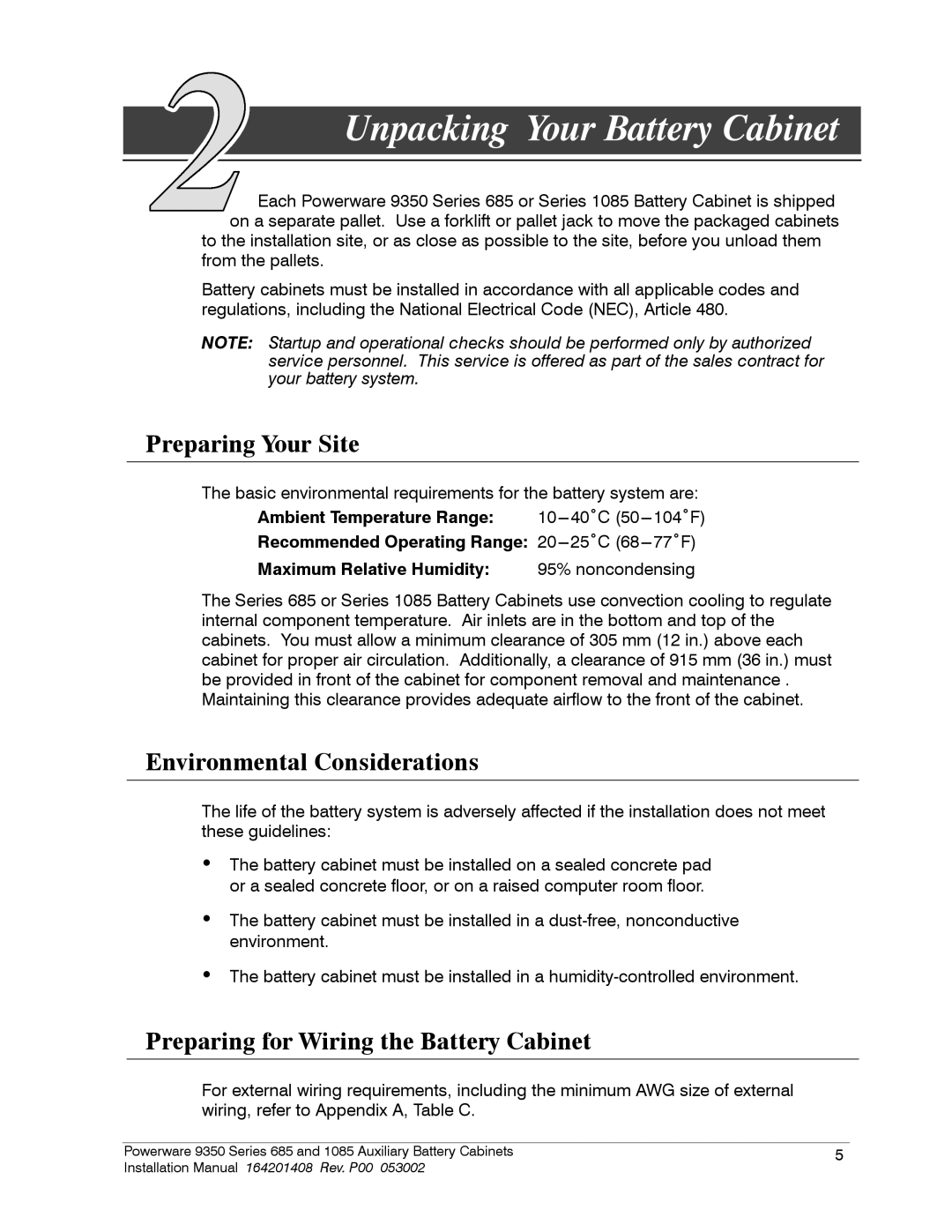
Unpacking Your Battery Cabinet
Each Powerware 9350 Series 685 or Series 1085 Battery Cabinet is shipped on a separate pallet. Use a forklift or pallet jack to move the packaged cabinets
to the installation site, or as close as possible to the site, before you unload them from the pallets.
Battery cabinets must be installed in accordance with all applicable codes and regulations, including the National Electrical Code (NEC), Article 480.
NOTE: Startup and operational checks should be performed only by authorized service personnel. This service is offered as part of the sales contract for your battery system.
Preparing Your Site
The basic environmental requirements for the battery system are:
Ambient Temperature Range: | 40˚C | 104˚F) | |
Recommended Operating Range: | 25˚C | 77˚F) | |
Maximum Relative Humidity: | 95% noncondensing | ||
The Series 685 or Series 1085 Battery Cabinets use convection cooling to regulate internal component temperature. Air inlets are in the bottom and top of the cabinets. You must allow a minimum clearance of 305 mm (12 in.) above each cabinet for proper air circulation. Additionally, a clearance of 915 mm (36 in.) must be provided in front of the cabinet for component removal and maintenance . Maintaining this clearance provides adequate airflow to the front of the cabinet.
Environmental Considerations
The life of the battery system is adversely affected if the installation does not meet these guidelines:
•The battery cabinet must be installed on a sealed concrete pad or a sealed concrete floor, or on a raised computer room floor.
•The battery cabinet must be installed in a
•The battery cabinet must be installed in a
Preparing for Wiring the Battery Cabinet
For external wiring requirements, including the minimum AWG size of external wiring, refer to Appendix A, Table C.
Powerware 9350 Series 685 and 1085 Auxiliary Battery Cabinets | 5 |
Installation Manual 164201408 Rev. P00 053002 |
|
